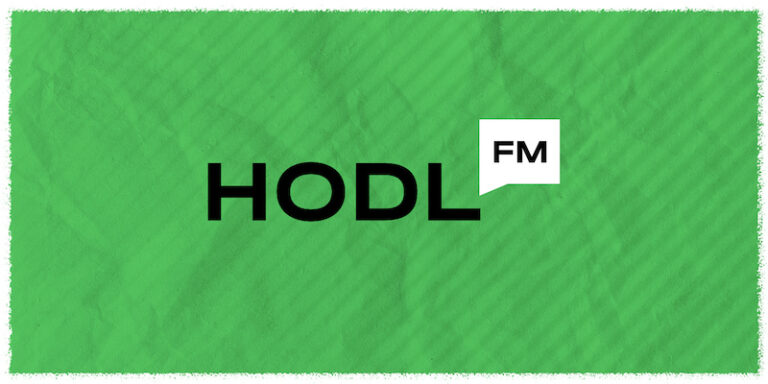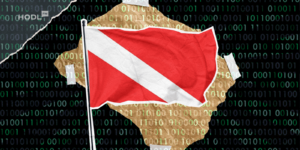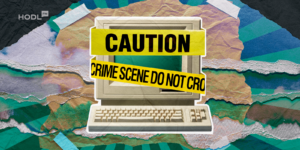Today, we dive headfirst into the domain of Decentralized Finance, lovingly known as DeFi! Think of it as the finance equivalent of a party – open to all, full of energy, and leaving the old financial systems in disbelief!
What is Decentralized Finance (DeFi)?
Decentralized Finance (DEFI) is a financial technology that draws inspiration from blockchain technology, decentralisation, cryptocurrencies and financial services. So that users of DEFI can have access to services like crypto lending, crypto borrowing, trading digital assets, providing liquidity to crypto tokens, yield farming and so on.

Decentralization Vs Centralized in Finance
Decentralized and centralized are two contrasting approaches that have been duking it out in the realms of technology and governance. Think of them as the yin and yang of power distribution, each with its own quirks and features.
Read more: EDX Markets: A Revolutionary Odyssey into the Digital Financial Cosmos!
Centralization, fellow future hodlers, is like a big boss hogging all the control and decision-making. Remember that guy who keeps on insisting things should be done his way without considering anyone else’s preferences? In a centralized system, power is concentrated in a single entity or a small group of entities, making all the important choices and calling the shots. It’s like having a single chef in the kitchen, deciding what’s on the menu, and refusing to take any input from the sous chefs. It can be efficient at times, like a well-oiled machine, but it can also lead to a lack of flexibility, creativity, and diverse perspectives.
“I think decentralized finance and traditional banking are going to experience a kind of hybridization within the next few decades; a blending together that results in something greater than the sum of its parts.”
Hendrith Vanlon Smith Jr, CEO of Mayflower-Plymouth
Now, let’s swing over to the decentralized side of the spectrum. It’s like a wild party where everyone gets a say and the power is spread out like confetti. Decentralization is all about distributing authority and decision-making among multiple parties or participants. It’s like a potluck dinner, where everyone brings a dish, and you end up with a smorgasbord of culinary delights.
In a decentralized system, power is not held by a single entity, but rather shared among a network of participants, often facilitated by technology. It’s like having a team of talented chefs working together, each bringing their unique flavours to the table.
This approach allows for more transparency, inclusivity, and adaptability, but can sometimes be like herding cats, with multiple voices vying for attention.

The key features that distinguish decentralized and centralized systems are like night and day.
In centralized systems, decision-making is top-down, like a dictator barking orders. You’ve got a clear hierarchy, with a single point of authority, making the final call. It’s like a one-man show but without the catchy tunes.
On the other hand, decentralized systems embrace the power of the people. Decision-making is often more bottom-up, like a well-coordinated flash mob. It’s like democracy on steroids, with power distribution, sharing and consensus-driven.
When it comes to control, centralized systems keep a tight grip on everything, like a security guard at a museum, ensuring nothing goes awry. Decentralized systems, however, are more like a self-organizing flash mob, with participants having greater autonomy and freedom to operate. It’s like a game of trust fall, where everyone has their role, and the collective efforts keep things running smoothly.
DeFi boom is a very near equivalent of an apocalyptic event for the traditional financial institutions.”
Mohith Agadi, Founder at Fact Protocol
In a centralized system, change can be slow, like a sloth taking its sweet time to cross the road. There’s often a lot of bureaucracy and red tape to navigate, hindering progress. On the other hand, decentralized systems have the agility of a nimble cat, able to adapt and evolve quickly. They’re like a startup in a garage, experimenting and iterating at the speed of light.
So, my friend, whether you prefer the authoritative embrace of centralization or the democratic chaos of decentralization, each approach brings its own flavour to the table. Think of choosing between a five-star restaurant where the chef decides everything or a potluck dinner where everyone gets a say. It all boils down to the context and the goals you’re trying to achieve.
Read more: Where to Store Your Crypto? Wallets vs. Exchanges
Key Concepts and Components of DeFi
The building blocks of DEFI include decentralization, openness and transparency.
Below are brief discussions about each core building block:
- Decentralization
Decentralization eliminates intermediaries within a system and prevents single points of failure. Every network participant controls the network and takes part in governance.
- Transparency
Every transaction that takes place on DeFi is transparent and immutable. Immutable means no one can change a transaction once recorded on the blockchain.
- Openness
DeFi runs on the principles of open source and ensures every piece of information is public for every network participant to access.
- Accessibility
Decentralized Finance has to be accessible to everyone with an internet connection. This means they are all available to participants, whether it’s financial services or gaming.
Benefits and Advantages of Decentralized Finance
Let’s dive into the benefits and advantages of this funky acronym that stands for Decentralized Finance, shall we?
- Puts you in control
First off, DeFi is like a superhero cape for your money—it gives you superpowers! With DeFi, you can say goodbye to the traditional gatekeepers and middlemen of the financial world. No more waiting in line at the bank, dealing with grumpy tellers, and jumping through hoops just to access your funds. Instead, you become your own boss, with the power to manage your finances directly. It’s like having a personal finance sidekick who always has your back (and your wallet).
- Financial freedom
Now, let’s talk about the freedom that DeFi brings. It’s like a financial wild west, where you can explore new territories and take risks without the suffocating rules of the old-school financial institutions. You can lend your money to strangers across the globe, participate in mind-bogglingly complex investment strategies, and even create your own financial products. It’s like being an adventurer in a treasure-filled jungle, discovering new ways to grow your wealth (and hopefully not getting eaten by a financial piranha).
- Transparency
The beauty of transparency! With DeFi, you can see through the financial fog like a superhero with x-ray vision. Every transaction, every piece of data is recorded on a public blockchain for all to see. It’s like having a crystal-clear window into the inner workings of the financial system. No more shady deals happening behind closed doors. It’s like the financial equivalent of wearing a truth serum at all times (just without the side effects).
- Automation and DAOs
Let’s not forget the glorious world of automation that DeFi offers. It’s like having a financial butler who takes care of all the boring tasks for you. Smart contracts, those lines of code that execute automatically when certain conditions are met, do the heavy lifting. They handle loan repayments, and interest calculations, and even distribute profits. It’s like having a robot army of accountants and financial advisors at your command (minus the annoying robot uprising, hopefully).
- Inclusivity
Last but not least, let’s talk about inclusivity. DeFi opens the doors of the financial world to anyone with an internet connection and a dream. It doesn’t matter if you’re a fancy investor in a suit or a pyjama-clad enthusiast in your mom’s basement. Everyone gets a seat at the DeFi table. It’s like a global potluck where everyone brings their unique flavours, and the result is a buffet of financial opportunities.
Use Cases and Applications of DeFi
Decentralized Finance (DeFi) is an emergent and relatively new technology that has positively impacted financial services. Some popular applications include:
- Lending and Borrowing
DeFi has enabled the lending and borrowing of cryptocurrencies without the need for banks, lengthy approvals and credit references.
- DeFi Staking
Staking involves locking up cryptocurrencies in a wallet for a given period of time to earn interest.
- Decentralized Exchanges (DEX)
Decentralized Exchanges (DEX) facilitate the trading of cryptocurrencies without using centralized exchanges. This eliminates middlemen, third-party services and centralized financial governance.
- Challenges and Considerations in DeFi
Fiery hurdles await in the realm of DeFi, which include security risks, regulatory ambiguity, scalability concerns, smart contract vulnerabilities, liquidity challenges, and user education.

It is vital to navigate with caution, mind the pitfalls, and strive for balance in this wild decentralized frontier. Here is why:
In Q1 2023 alone, DeFi recorded 228 security breaches and over $775 million in lost crypto funds. As you can see security is such a sensitive topic for decentralized finance. Hackers are stealing user funds left, right and centre. Remember the recent Arcadia Finance hack that saw hackers steal $455,000, wash them through Tornado Cash and get away with it? This is common in DEFI, but over time, cyber security experts will crack the code for protecting the realms of decentralization.
Read more: Trends and Performance of Major Cryptocurrencies
Concerns around scalability and transaction costs are an additional challenge to the space. Nearly half of all blockchains today face scalability issues, however, a majority have resulted in developing layer 2 protocols to help mitigate the negative implications of compact systems.
Tight regulations, heavy lawsuits, bankruptcy. There was a time the SEC used to sue and take down the bad financial guys. Cameron Winklevoss now thinks SEC are the bad guys, there are taking down any worthy DeFi venture and they seriously want them down with hands on their heads.
The Future of DeFi
The future of DeFi gleams with the promise of a financial revolution, ready to shake up the traditional systems and redefine the very fabric of finance. With its decentralized nature, DeFi has the potential to disrupt the status quo, offering an alternative to centralized intermediaries and empowering individuals with direct control over their finances.
Imagine a world where loans are peer-to-peer, cross-border payments are real-time, gamers can own in-game assets, investments are borderless, and financial services are accessible to all, regardless of location or socioeconomic status. This disruptive force is already gaining momentum, and the upcoming developments in the DeFi space are bound to accelerate its impact. We can anticipate advancements in scalability, interoperability, and user experience, with innovative solutions being devised to tackle the challenges of security and regulatory compliance.
As this nascent industry evolves, it becomes crucial for individuals to stay informed, explore the diverse opportunities presented by DeFi, and actively participate in shaping the future of finance. So, hodlers, keep an eye on the horizon, and embrace the transformative power of DeFi. The future is calling, and it’s time to answer.
Disclaimer: All materials on this site are for informational purposes only. None of the material should be interpreted as investment advice. Please note that despite the nature of much of the material created and hosted on this website, HODL.FM is not a financial reference resource and the opinions of authors and other contributors are their own and should not be taken as financial advice. If you require advice of this sort, HODL.FM strongly recommends contacting a qualified industry professional.



